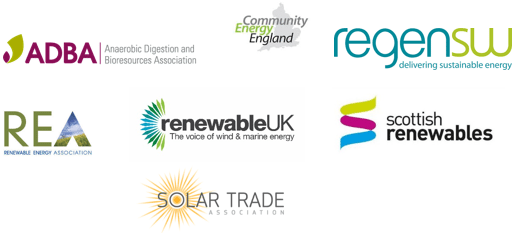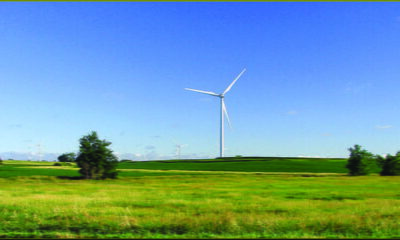

Economy
Feed-in Tariff preliminary accreditation closure: bad for business and bad for energy security: industry statement
This is the Joint Statement released today by renewable energy associations on the closure of the Feed-in Tariff preliminary accreditation
On behalf of the renewable energy sector, and many thousands of businesses, community groups and investors, our organisations have come together to call on the Department of Energy and Climate Change to review urgently its decision to remove preliminary accreditation from the Feed-in Tariff.
As of today, 1st October, developers are no longer able to register for financial support under the FiT at a specific level before they start generating, increasing uncertainty over their viability. This change has removed access to the FiT from individuals, farmers, businesses, investors and communities looking to generate their own power. As a result, hundreds of projects, millions of pounds of investment and many thousands of jobs have been put at risk. It also has the reverse impact of what the Government seems to intend, by pushing up costs.
This change is bad for business and bad for energy security. Renewable energy is not a “nice to have”: it generates more electricity than coal and provides employment in manufacturing and in the rural economy.
We believe the consultation process on the removal of pre-accreditation was deeply flawed. No impact assessment was provided by DECC and insufficient time was allowed for a proper consideration of the proposal. The unexpected move was announced on 22nd July and confirmed on 9th September.
Since the Government’s decision to remove pre-accreditation, DECC has launched a root and branch Feed-in Tariff review which envisages fundamental changes to tariffs and caps on levels of deployment. The Government has indicated that pre-accreditation could be reintroduced as part of future proposals. Since it is unclear how the scheme can operate without a pre-accreditation system, we would like to see a clear statement from Government about the use of new pre-accreditation controls as part of any revised scheme.
It is unfortunate that we have so far been unable to establish meaningful engagement with DECC on this matter. We would therefore urge DECC to expedite meaningful engagement between ourselves, the Secretary of State and her advisors in the coming weeks. We desire to work in a spirit of co-operation with Government and find a route forwards that allows many more people to benefit from installing renewables on their rooftops, farms or businesses, while helping to manage costs for all consumers.
Anaerobic Digestion and Bioresources Association
Community Energy England
Regen SW
Renewable Energy Association
RenewableUK
Scottish Renewables
Solar Trade Association


 Environment12 months ago
Environment12 months agoAre Polymer Banknotes: an Eco-Friendly Trend or a Groundswell?

 Features11 months ago
Features11 months agoEco-Friendly Cryptocurrencies: Sustainable Investment Choices

 Features12 months ago
Features12 months agoEco-Friendly Crypto Traders Must Find the Right Exchange

 Energy11 months ago
Energy11 months agoThe Growing Role of Solar Panels in Ireland’s Energy Future





























